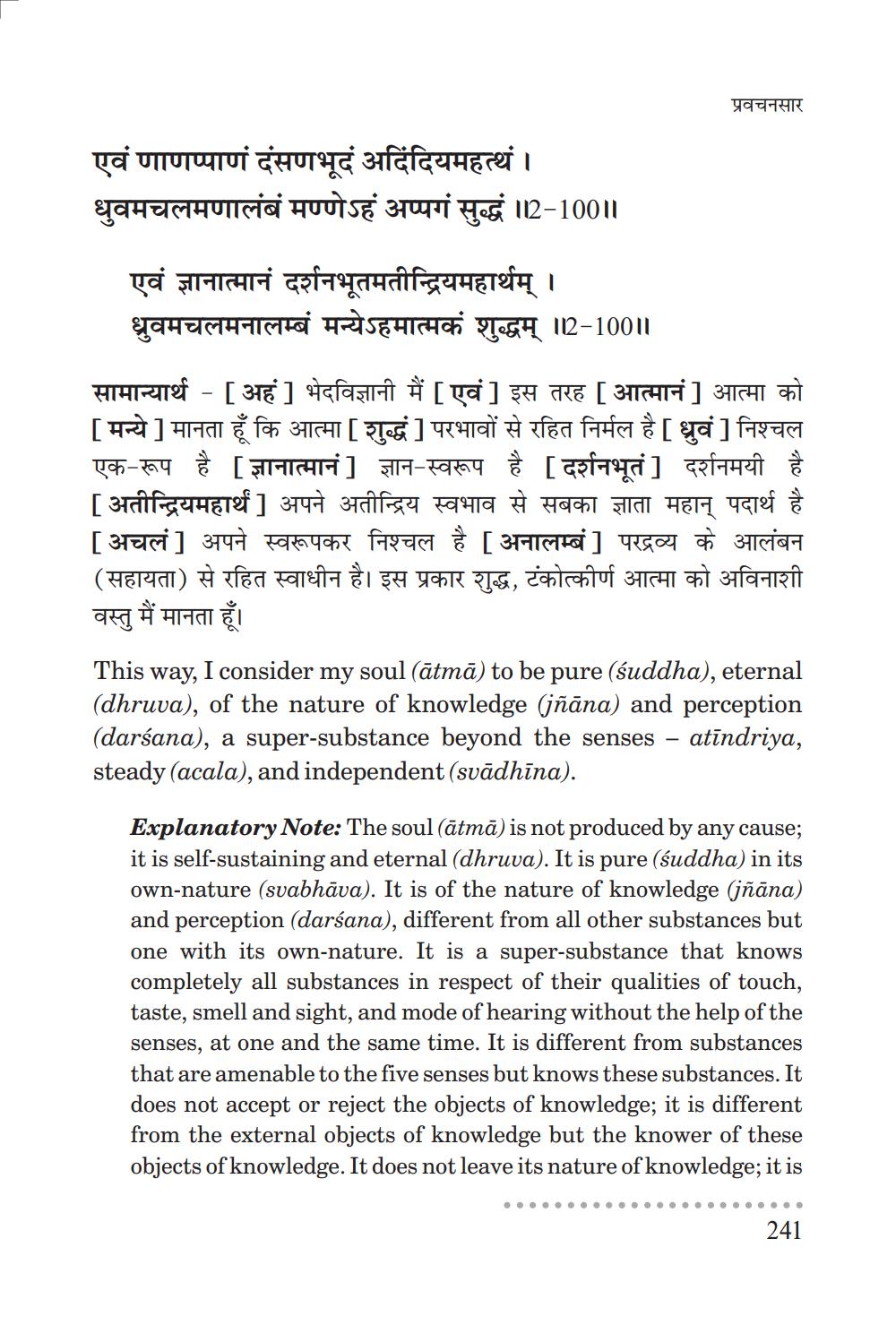________________
एवं णाणप्पाणं दंसणभूदं अदिंदियमहत्थं । धुवमचलमणालंबं मण्णेऽहं अप्पगं सुद्धं 12-1001
एवं ज्ञानात्मानं दर्शनभूतमतीन्द्रियमहार्थम् । ध्रुवमचलमनालम्बं मन्येऽहमात्मकं शुद्धम् ॥2-1001
प्रवचनसार
-
सामान्यार्थ – [ अहं ] भेदविज्ञानी मैं [ एवं ] इस तरह [ आत्मानं ] आत्मा को [ मन्ये ] मानता हूँ कि आत्मा [ शुद्धं ] परभावों से रहित निर्मल है [ ध्रुवं ] निश्चल एक-रूप है [ज्ञानात्मानं ] ज्ञान - स्वरूप है [ दर्शनभूतं ] दर्शनमयी है [ अतीन्द्रियमहार्थं ] अपने अतीन्द्रिय स्वभाव से सबका ज्ञाता महान् पदार्थ है [ अचलं] अपने स्वरूपकर निश्चल है [ अनालम्बं ] परद्रव्य के आलंबन (सहायता) से रहित स्वाधीन है। इस प्रकार शुद्ध, टंकोत्कीर्ण आत्मा को अविनाशी वस्तु मैं मानता हूँ।
This way, I consider my soul (ātmā) to be pure (śuddha), eternal (dhruva), of the nature of knowledge (jñāna) and perception (darśana), a super-substance beyond the senses - atīndriya, steady (acala), and independent (svādhīna).
Explanatory Note: The soul (ātmā ) is not produced by any cause; it is self-sustaining and eternal (dhruva). It is pure (śuddha) in its own-nature (svabhāva). It is of the nature of knowledge (jñāna) and perception (darśana), different from all other substances but one with its own-nature. It is a super-substance that knows completely all substances in respect of their qualities of touch, taste, smell and sight, and mode of hearing without the help of the senses, at one and the same time. It is different from substances that are amenable to the five senses but knows these substances. It does not accept or reject the objects of knowledge; it is different from the external objects of knowledge but the knower of these objects of knowledge. It does not leave its nature of knowledge; it is
.........
241




